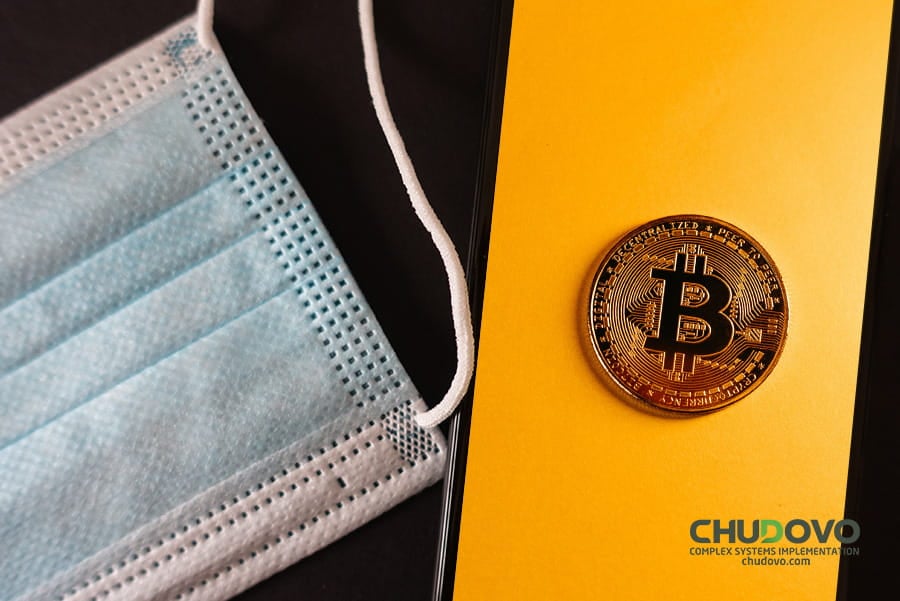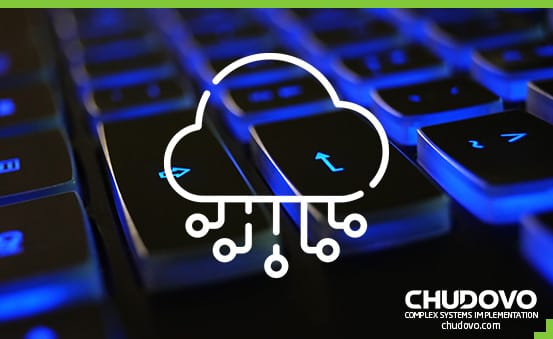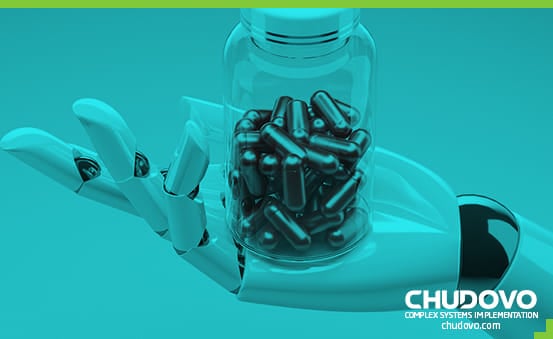Blockchain in Healthcare – Use Cases and New Opportunities
Blockchain technology has already disrupted a number of sectors, including finance, food production, supply chain management, etc. With the increased digitization of healthcare and the need for quality data storage, blockchain technology is increasingly becoming an attractive solution to many of the issues that the healthcare industry is facing. The blockchain promise of decentralization, low costs, privacy, and streamlined data management have made it a form of technology that is key to the healthcare sector.
In this article, we will discuss the key benefits associated with blockchain in healthcare, explore various use cases in healthcare, cover how blockchain can be used to create new opportunities for the healthcare industry, the FAQs, and consider the untapped possibilities for the healthcare industry in general.
Table of Contents
- Key Benefits of Blockchain Technology in Healthcare
- Use Cases of Blockchain in Healthcare
- New Opportunities in Healthcare with Blockchain
- Conclusion
- FAQs on Blockchain in Healthcare

Key Benefits of Blockchain Technology in Healthcare
- Immutable medical records: One of the key benefits of blockchain technology in healthcare is the improved accuracy and reliability of patient medical records. Every medical transaction is securely recorded on the blockchain ledger and is immutable. If someone attempts to change the record, all subsequent blocks in the chain will be rejected by the network, ensuring that no changes can be made. This improves the reliability of the medical records and helps to minimize the risk of medical errors.
- Eliminates the need for multiple parties access: Another key benefit of blockchain in healthcare is that it eliminates the need for multiple parties to manage and share patient data. With blockchain, all data is electronically stored in a secure, shared database that can be updated, tracked, and shared between different healthcare organizations and stakeholders. This allows healthcare organizations to achieve better patient outcomes by ensuring that all parties involved are able to access the most accurate, up-to-date information on an individual’s condition.
- Smart contract capacities: Blockchain technology is also a secure way to develop smart contracts which can be used to securely manage and automate insurance and supply chain settlements. Healthcare organizations can use smart contracts to streamline their insurance and supply chain operations, saving time and resources. Blockchain technology also offers improved privacy for patient data, as all information is securely stored in a distributed ledger.
- Improved security of remote monitoring devices: This is another key benefit of blockchain is the improved security of remote monitoring devices – such as the Internet of Things (IoT) – as it helps to protect against malicious attacks and data breaches. With blockchain’s distributed ledger system and hash function, it is virtually impossible to tamper with stored medical records or any other data stored on the network. This makes remote monitoring devices much more secure.
- Advanced security architecture of the healthcare ecosystem: Finally, blockchain technology helps to improve the overall security of healthcare systems by increasing the security of credentials verification and population-level data. All records stored on the blockchain are immutable and cannot be altered, so healthcare organizations can be sure that identity fraud has not occurred and that data is accurate. Similarly, population-level data can be tracked and analyzed in a secure and reliable manner, allowing healthcare organizations to quickly identify trends in patient health and develop strategies to better manage healthcare resources.
Use Cases of Blockchain in Healthcare
1. Medical Records
A key benefit of incorporating blockchain into healthcare is the ability to store medical records digitally and securely, reducing the need for physical files. Medical records are typically stored in separate databases, making it difficult for healthcare workers to access the same patient data. By utilizing blockchain technology, medical records can now be securely shared between multiple parties, providing a tamper-proof, transparent system for all of the involved parties. As a result, the time it takes to access and review patient records is significantly reduced.
2. Patient Data
The secure storage of patient data is essential in the healthcare industry, as it ensures the accuracy of medical records, while also protecting patient privacy. By utilizing blockchain technology, healthcare organizations can manage patient data in a secure, decentralized manner, allowing multiple parties access to the same data. This prevents files from being corrupted or misused, while also providing more accurate records, ensuring that the correct medical treatments are provided to each patient.
3. Telemedicine Services
Telemedicine platforms are increasingly being used as a way for patients to receive medical care from the comfort of their own homes. By using technology such as video conferencing, patients can consult with healthcare providers remotely, saving time and reducing the need for in-person visits. However, the use of telemedicine raises important questions about the security and privacy of medical data, as well as the need to ensure that patients receive high-quality care.
Blockchain can help to address these concerns by providing a secure and transparent system for recording and sharing medical information between patients and healthcare providers. For example, telemedicine platforms can use blockchain to create a secure and private communication channel between patients and healthcare providers, while also enabling the secure and seamless exchange of medical data. This can help to improve the overall quality and efficiency of telemedicine services.
4. Supply Chain Processes
Blockchain technology is also utilized to manage the lifecycle of medical supplies and equipment. By incorporating blockchain into their supply chain processes, healthcare organizations can track their inventory of supplies and track the process of ordering and delivery of the materials. This gives healthcare organizations greater visibility and control over their supply chain process, enabling them to identify any issues in the system, as well as allowing them to respond quickly to any changes in the supply chain.
5. Clinical Decision Support Systems (CDSS)
Clinical Decision Support Systems (CDSS) are designed to assist healthcare providers in making informed treatment decisions for their patients. These systems are often based on complex algorithms that analyze patient data, including medical history, lab results, and other relevant information, to provide recommendations for treatment.
Blockchain can help to improve the accuracy and reliability of CDSS by creating a secure and transparent system for recording and sharing medical information. For example, healthcare providers can use blockchain to securely store patient data, including medical history and lab results, and to make this information available to CDSS in real time. This can help to ensure that the information used to make treatment decisions is up-to-date and accurate, which can lead to better patient outcomes.
6. Medical Errors Avoidance
The use of blockchain in healthcare can also provide an additional layer of protection against medical errors. When healthcare professionals incorporate blockchain into their systems, this ensures patient records are accurate and up to date, thereby eliminating the potential for a medical error due to incorrect data. Additionally, blockchain technology can also help healthcare organizations to identify and respond quickly to any problems with the accuracy or integrity of the medical data.
7. Credential Verification
As healthcare organizations become increasingly reliant on digital technologies, the need to verify the credentials of medical staff is becoming essential. Through the incorporation of blockchain into the credential verification process, healthcare organizations can verify medical staff in a secure and efficient manner, eliminating the potential for fraud or mismanagement. Furthermore, blockchain technology also enables medical institutions to quickly and seamlessly verify the credentials of medical professionals, reducing the amount of time it takes to complete the verification process.
8. Enabling New Business Models
Blockchain technology could be used to facilitate new business models in the healthcare industry. For example, it could be used to enable contracts for insurance and supply chain settlements, as well as to securely store patient data in medical records. In addition, healthcare providers could use blockchain to track patient medical data over time, providing insights into trends in health outcomes, which could be used to improve public health initiatives.
9. Improving Healthcare Research
Blockchain technology could also improve healthcare research by providing data sources that are more secure and reliable. By securely storing patient data in a blockchain ledger, healthcare researchers could access more accurate population-level health records. This could help researchers gain insights into the overall health of a population, which could be used to improve public policies and health interventions.
10. Disease Outbreak Tracking
Blockchain can be used to improve the tracking and management of disease outbreaks by creating a secure and decentralized system for recording and sharing information about infected individuals and the spread of diseases. This can help to quickly identify and respond to outbreaks, reducing the risk of further infections and saving lives.
Disease outbreaks can have devastating effects on communities, economies, and the world at large. In order to effectively manage and contain these outbreaks, it’s important to have accurate, up-to-date information about the spread of diseases. Unfortunately, this information can often be difficult to obtain and manage, especially in developing countries with limited resources and infrastructure.
Blockchain can help to overcome these challenges by creating a secure and decentralized system for recording and sharing information about infected individuals and the spread of diseases. This can help to quickly identify and respond to outbreaks, reducing the risk of further infections and saving lives.
For example, healthcare providers can use blockchain to record information about patients who have been diagnosed with a certain disease. This information can then be securely and transparently shared with public health authorities, who can use it to monitor the spread of the disease and take appropriate measures to contain it.
New Opportunities in Healthcare with Blockchain
With the emergence of technologies such as blockchain, the healthcare industry is presented with unprecedented opportunities to revolutionize its operations. As healthcare organizations look to increase efficiency and minimize costs, blockchain technology offers promising solutions for population-level surveillance, interoperability of healthcare systems, digitalized and automated processes, smart contracts, and enhancing professional medical care with remote monitoring and IoT security. That said, here are some of the breathtaking new opportunities blockchain creates in healthcare:
Population Level Surveillance
The use of blockchain in healthcare could allow for population-level surveillance and monitoring. The blockchain ledger could be used to store patient data securely and in a decentralized architecture. This data could be used to gain insights on an individual and population level, as well as provide real-time analytics for epidemiological surveillance. The ability to aggregate patient data on a blockchain ledger would enable healthcare organizations to quickly identify threats, respond to outbreaks, and detect trends earlier.
Interoperability of Healthcare Systems
Blockchain technology could revolutionize the interoperability of healthcare systems and the exchange of data between them. The use of blockchain in healthcare could allow patients to securely access their data across multiple networks and share it across various providers. This would enable organizations to gain insights into patient information and better coordinate care between multiple parties. Furthermore, by storing data in a blockchain ledger, organizations could verify the source of the data, thus increasing the accuracy and trustworthiness of patient information.
Digitalized and Automated Processes
Blockchain technology could enable digitalized and automated processes in healthcare. By creating smart contracts on the blockchain ledger, organizations could automate the entire healthcare process from patient registration to medical billing. These smart contracts could also be used to store medical data and records, facilitating easier access across multiple parties. Furthermore, by using a permission-based network, organizations could grant or revoke access to the blockchain ledger, ensuring the security of patient data.
Smart Contracts
Smart contracts on the blockchain ledger could be used for a variety of healthcare applications. Through the use of blockchain technology, healthcare organizations could securely store and share medical records between multiple parties. Furthermore, smart contracts could be used to automate medical billing and create medical records that are tamper-proof. Smart contracts could also be used to facilitate transactions between healthcare providers, insurers, and suppliers, as well as credential verification between medical staff.
Enhancing Professional Medical Care with Remote Monitoring
Blockchain technology could revolutionize the way professional medical care is delivered. By automatically monitoring the health of patients remotely and securely, medical organizations could detect potential issues quickly and provide care before it escalates and become a major problem. Furthermore, by securely storing patient data in a blockchain ledger, healthcare organizations could ensure that medical staff has access to up-to-date and accurate information.
IoT Security
The security of patient data is of utmost importance to healthcare organizations. With the rise of IoT (Internet of Things) devices in the healthcare industry, blockchain technology could provide a secure way to transmit and store patient data. By using a permission-based network and a unique hash function, organizations could ensure that all data is secure and tamper-proof. In addition, blockchain technology could be used to monitor and detect IoT devices, further enhancing the security of patient data.
Empowering Patients
One of the key benefits of blockchain technology in healthcare is that it gives patients increased control over their personal data. This is possible because the cryptographic records stored on the blockchain ledger make it possible for patients to access and update their medical records online, without the need for third-party authentication. Furthermore, blockchain technology can also be used to securely store medical data, ensuring that sensitive information remains inaccessible to unauthorized personnel.
Regulatory Compliance
In addition to empowering patients, blockchain technology can help healthcare organizations meet regulatory standards by allowing them to store and track all patient data in an immutable and secure way. Furthermore, the decentralized nature of blockchain technology ensures that all parties involved in a transaction have access to the same source data, allowing for easier monitoring and auditing of healthcare organizations. This can help organizations ensure that they remain compliant with medical and privacy regulations, protecting their data and network from potential security threats.
Clinical Trials and Data Analysis
Blockchain technology in healthcare makes it possible to streamline clinical trials and provide better data analysis. Storing patient data on the blockchain has made it possible for healthcare organizations to have access to accurate and immutable records of all the data associated with clinical trials. With this data, they can gain insights into a wide variety of clinical aspects, including patient responses and drug efficacy. This data can then be used to optimize clinical trials, with improved accuracy and consistency of the results.
IoT Security for Remote Monitoring
The development of connected devices such as biometrics and wearable technologies has allowed healthcare providers to monitor patients remotely. However, the increasing number of connected devices has also created a number of security risks. Fortunately, the security features offered by blockchain technology can be used to protect IoT devices from cyberattacks, allowing healthcare organizations to securely store and manage patient data. Furthermore, blockchain can also be used to ensure that only authorized personnel are able to access and update the information stored within these devices.

Certified engineers
Convenient rates
Fast start
Profitable conditions
Agreement with
EU company
English and German
speaking engineers
Conclusion
In conclusion, blockchain technology has revolutionized the healthcare sector by providing a secure and transparent platform for the storage and sharing of medical data. By using blockchain, key benefits such as reduced medical errors, enhanced patient data privacy and security, efficient credential verification and eligibility checks, reduced healthcare costs, secure real-time information sharing, and improved population-level analytics can be achieved.
There is no doubt that the blockchain healthcare industry is still in its early stages and has huge potential for growth. Organizations, from start-ups to large healthcare providers, are already working to bring innovative blockchain solutions to the healthcare sector and unlock the potential of this technological marvel. By leveraging their unique hash function and smart contracts, blockchain stands to benefit the healthcare industry in a number of ways, providing improved peace of mind for both healthcare professionals and patients alike. With more developments in blockchain technology, user adoption will lead to implementation of blockchain-based healthcare use cases, providing even more opportunities in the near future.
FAQs on Blockchain in Healthcare, Use Cases, and New Opportunities
What are some common healthcare use cases for blockchain?
There are numerous applications for blockchain technology in healthcare. These include patient data management, secure medical record sharing, reducing medical errors, automating healthcare supply chains, and streamlining credential verification processes. Additionally, blockchain technology can be used for IoT security for remote monitoring, providing unique hashes for medical staff identification, and improving population-level health insights.
How can blockchain be used to improve healthcare organizations?
Blockchain technology can be used to improve healthcare organizations by reducing medical errors, streamlining the credential verification process, improving population-level health insights, and providing secure medical data sharing between healthcare providers. Additionally, blockchain can be used to automate the healthcare supply chain, allowing for a more efficient and secure process.
How is blockchain being used in practice?
Blockchain is already being used in practice by a variety of healthcare organizations, including Johns Hopkins and the Health Insurance Portability and Accountability Act (HIPAA). Johns Hopkins is using blockchain technology to reduce medical errors and streamline credential verification processes, while HIPAA is using the technology to provide secure data storage and sharing for patients. Additionally, blockchain technology is being used to automatically execute smart contracts for insurance and supply chain settlements, providing improved security, transparency, and efficiency.
Are there any examples of successful blockchain healthcare implementations?
Yes, the healthcare sector is already beginning to implement blockchain solutions. For example, Johns Hopkins Medicine recently completed a pilot project that used blockchain technology for secure and efficient laboratory tracking of COVID-19 patient samples. Additionally, Philips is using blockchain technology to develop connected and secure IoT solutions for remote patient monitoring.
What are the potential risks and challenges of blockchain technology in healthcare?
As with any new technology, there are potential risks and challenges associated with the implementation of blockchain in healthcare. These include the need for thorough testing, potential security and privacy issues, and the lack of technical expertise in the sector. Additionally, some healthcare organizations may be hesitant to invest in blockchain solutions due to the cost of development and the lack of scalability and interoperability between different solutions.
What do healthcare organizations need to consider before implementing blockchain technology?
Before implementing a blockchain solution, healthcare organizations must evaluate whether the benefits of the technology outweigh the potential risks and challenges. They must also consider the degree of scalability and interoperability required for their particular use case and understand the legal and regulatory implications of blockchain solutions. Additionally, organizations must ensure that they secure the necessary resources, including employing experienced technical expertise, to successfully implement and maintain the technology.
Speaking of employing the hands of experienced technical experts, Chudovo offers a range of skilled developers to help you build scalable, personalized, and secure blockchain solutions. Whatever your ideas are, we’re able to understand and take them from the ideation stage to development and launch. Contact Us now to get started!




